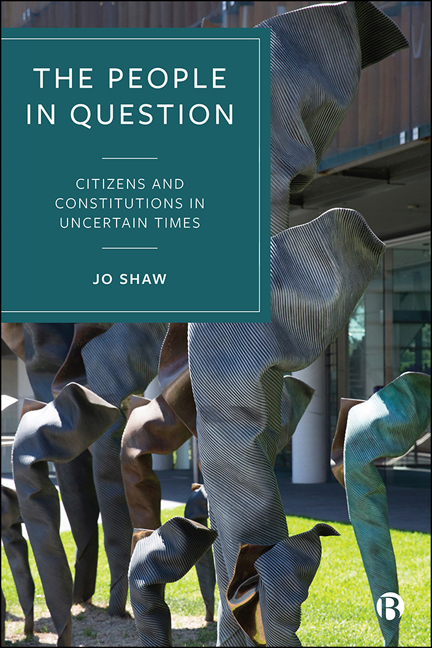5 - Filling out Citizenship: Citizenship Rights, Constitutional Rights and Human Rights
Published online by Cambridge University Press: 18 March 2021
Summary
Introduction: constitutional rights and citizenship
This final chapter of Part II turns to the topic of the rights associated with citizenship. Here we will need to confront the ambiguous role of the state and of state institutions in relation to citizenship. Significant questions can be raised over whether it is appropriate to equate citizenship rights with constitutional rights, and what conclusions can be drawn from the differing treatment – across the globe – of the various types of constitutional rights, from the civil and the political to the economic and the social. The story of the evolution of citizenship rights highlights the differing ways in which state institutions have been co-opted into processes of struggle and resistance in relation to the enhancement and spread of citizenship rights, sometimes promoting the interests of citizens and citizen groups, and sometimes pushing back. Even though the leitmotiv of modern citizenship is supposed to be equality, it has still been the case that struggles for citizenship rights that are simply asking for equality can endure over many decades before achieving a positive outcome. A good example is the struggle for female suffrage (Ramirez et al 1997), where women ‘citizens’ could be excluded from full citizenship rights precisely because the law did not, in effect, recognize them as full citizens. It is hard, in that sense, to draw a line distinguishing between claims for citizenship and claims for rights. What is more generally true is that for citizens’ rights to be legally enforceable, as opposed to merely aspirational, the institutions of the modern constitutional state – judicial, legislative and executive – will inevitably have a role to play.
Against the backdrop of the uneven and sometimes sparse treatment of citizenship across the world's constitutions, it is interesting to note the ubiquity of rights in those same documents. They appear in literally every constitution in the world, including those inspired by Islamic principles that rely to a much greater extent on the language of duties and community rather than that of rights. Moreover, 38 current constitutions explicitly refer to the ‘rights of citizens’. More generally, the rights provisions of many constitutions are frequently drafted by reference to rights enjoyment by citizens, and with a view to those institutions required to protect those rights (courts, executive, special offices such as Ombudsman, and so on).
- Type
- Chapter
- Information
- The People in QuestionCitizens and Constitutions in Uncertain Times, pp. 149 - 178Publisher: Bristol University PressPrint publication year: 2020



